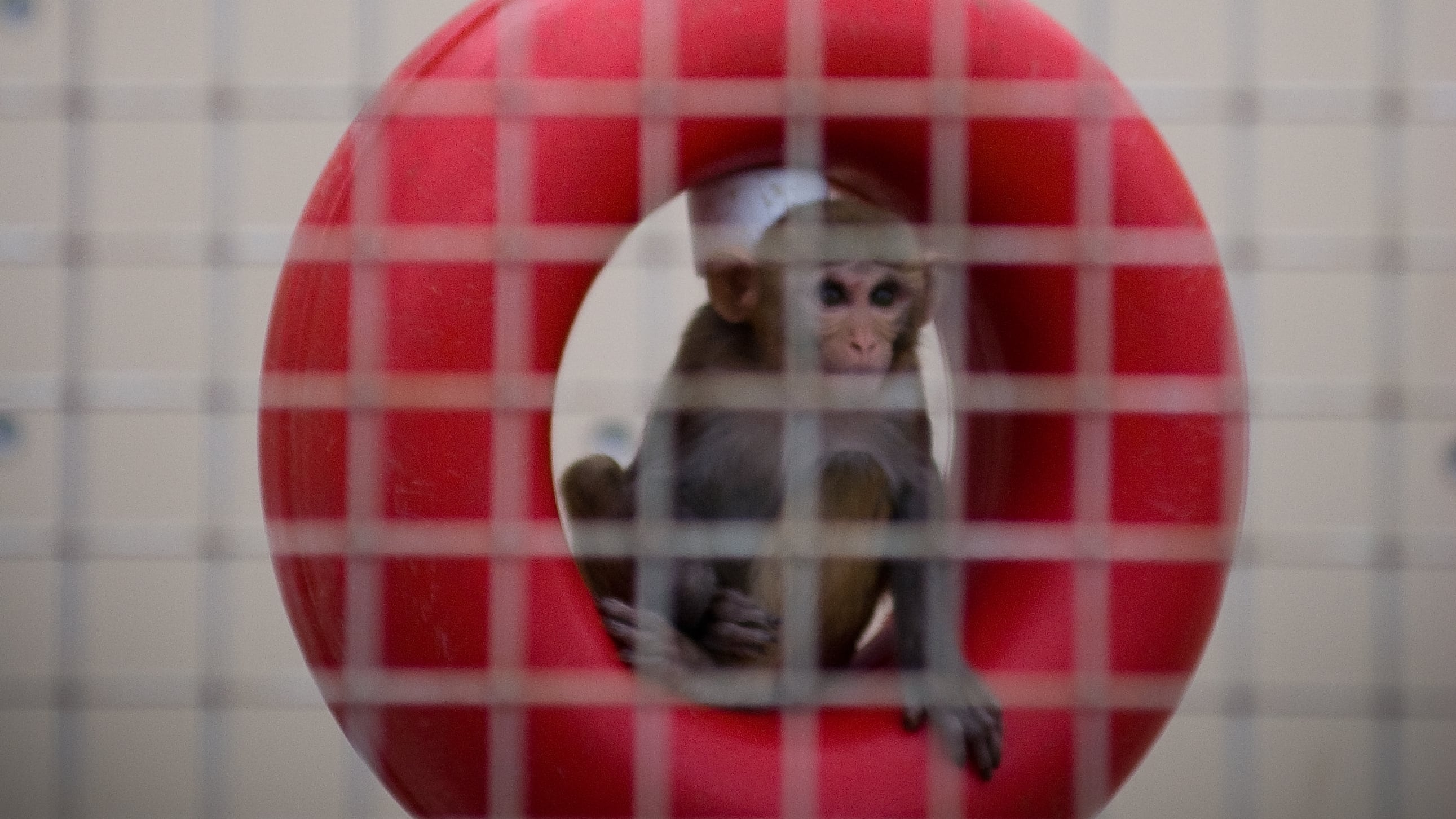Animal rights activists aiming to force the closure of the Oregon National Primate Research Center wrote to the U.S. Department of Government Efficiency this week urging it to cut funding for the facility because it conducts “wasteful, duplicative, and unethical experiments on nonhuman primates.”
The center got $56 million of its $63 million budget last fiscal year from the National Institutes for Health. DOGE is already in federal court fighting to slash millions from from NIH grants nationwide.
The tactic is the latest—and perhaps boldest—among many undertaken by the Physicians Committee for Responsible Medicine to close the center run by Oregon Health & Science University. The committee has amped up its efforts this year, betting that regulators could force OHSU to shutter the primate center as a condition of its proposed purchase of Legacy Health.
PCRM leaders addressed their April 8 letter to DOGE agent Gavin Kliger, a University of California, Berkeley-educated computer scientist who has shared social media content by white supremacist Nick Fuentes and self-described misogynist Andrew Tate, according to the Reuters news agency.
Asked if they had any qualms about calling upon an agency that has slashed funding for human health, the committee’s Janine McCarthy said in an email the “appeal to DOGE isn’t an endorsement of its broader agenda—it’s a strategic effort to redirect an existing drive for cuts toward something that urgently needs attention: federally funded animal experiments that are wasteful, duplicative, and lacking in scientific or ethical reasoning.”
OHSU defended its primate work. “Animal studies at OHSU are only conducted when other non-animal research methods—such as laboratory-based cell culture, simulation, gene chips or computer modeling—are scientifically inadequate and/or when experimental designs are too dangerous for human participants,” a spokeswoman wrote in an email.
DOGE shocked medical researchers last month when it cut the amounts given alongside grants to cover so-called indirect costs, like heat and electricity in labs, from as much as 60% to 15%. Institutions negotiate the indirect percentage with the NIH. OHSU’s has been 56%. Officials there say the 15% rate would make much of its research impossible given the costs.
